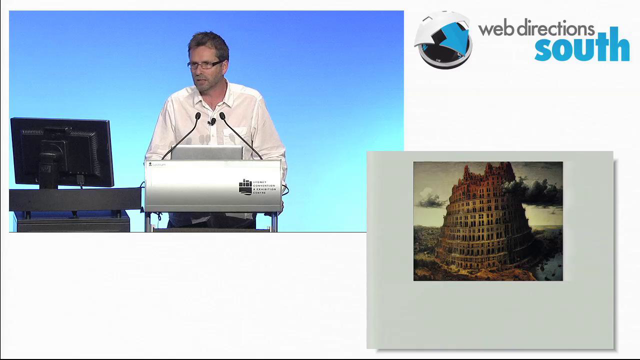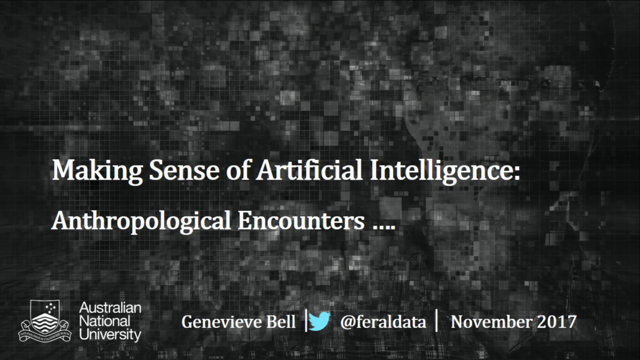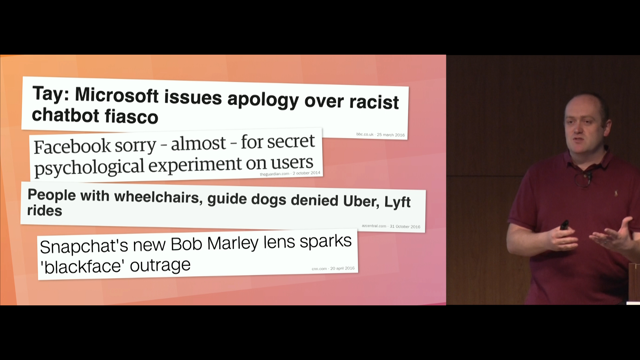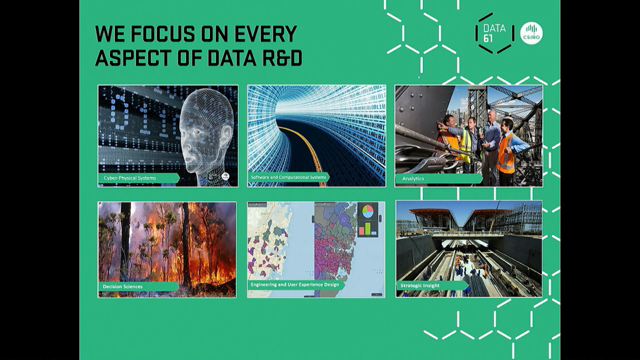Awakening the better angels Part 2. Merit selection and leadership

The Loss of Intrinsic Merit in Modern Society
Nicholas Gruen begins his talk by highlighting a fundamental issue in modern society: the loss of intrinsic merit. He argues that our civilization has become disconnected from the intrinsic value of things, focusing instead on superficial measures of success. Gruen uses Wikipedia as an example, illustrating how its meritocratic structure prioritizes intrinsic motivation and merit over democratic openness. This segment sets the stage for a deeper exploration of how societal structures have shifted away from valuing true merit.
The Flaws in Leadership Selection
Gruen discusses the flaws in contemporary leadership selection, where leaders are often chosen based on their ability to win attention and power rather than their intrinsic virtues. He critiques the current political, business, and academic systems for promoting careerism and self-promotion. Gruen contrasts this with the ideals of America's founding fathers, who envisioned leaders of integrity and wisdom. This segment underscores the disconnect between true merit and the qualities that are often rewarded in modern leadership.
Historical Models of Meritocracy
In this segment, Gruen explores historical models of meritocracy, particularly focusing on the electoral college and the Venetian Republic. He explains how these systems aimed to select leaders based on merit rather than popularity, using methods like random selection and secret ballots to prevent corruption. Gruen suggests that these historical examples offer valuable lessons for improving modern governance by incorporating more bottom-up meritocratic elements.
Challenges in Modern Merit Selection
Gruen reflects on the challenges of modern merit selection, noting that while systems have been optimized, they often exacerbate existing biases. He introduces Charlie Munger's concept of a "seamless web of deserved trust" as an ideal for human civilization. Gruen emphasizes the importance of vertical merit systems, using examples from aviation and medicine to illustrate how such systems can ensure competence and trust. This segment highlights the need for more effective merit-based selection processes in various sectors.
The Impact of Media and Market Dynamics
Gruen critiques the influence of media and market dynamics on politics and business, arguing that they prioritize sensationalism and short-term gains over genuine merit. He discusses how media competition for attention leads to a focus on superficial attributes, while market practices like shareholder value can undermine long-term efficiency. This segment explores the broader societal implications of these trends, suggesting that they contribute to the erosion of authentic meritocratic systems.
The Hollowing Out of Meritocratic Systems
In this segment, Gruen discusses the hollowing out of meritocratic systems, where counterfeit leadership thrives. He argues that societal systems have been stripped of genuine merit selection, leading to the rise of individuals who excel in manipulation rather than true leadership. Gruen warns of the dangers posed by the proliferation of misinformation, exacerbated by technologies like AI, and calls for solutions to restore integrity and authenticity in leadership.
Exploring Solutions and Audience Engagement
Gruen concludes his talk by suggesting potential solutions to the issues discussed, such as fostering environments where genuine merit can flourish. He invites audience participation, opening the floor to questions and reactions. This segment emphasizes the importance of dialogue and collective effort in addressing the challenges of modern meritocracy, encouraging listeners to consider their roles in effecting change.
Q&A: The Role of Trade Unions and Institutional Logic
During the Q&A session, an audience member asks about the role of trade unions in Gruen's vision of meritocracy. Gruen responds by acknowledging the challenges faced by unions and their role within existing organizational structures. He discusses the necessity of balancing organizational imperatives with efforts to transcend systemic limitations. This exchange highlights the complexities of integrating bottom-up meritocratic principles within established institutions.
Next time John introduces me, I want him to tell you that my influence on something else can't be overestimated.
That's his challenge.
Anyway, I will, begin this talk by saying to you that the video that I showed you misses out something I think completely fundamental to life and something which over the course of the building of the modern world, we've locked off our brain about, and replaced it with a kind of pretend module.
It doesn't really help us very much, and that is how do we choose good from bad?
I'll, play the video.
No, I'm on the wrong video.
I'm on video three.
I should be on video two.
Hopefully this will, hopefully I can.
Yes, that was easy enough.
Here we go.
Intrinsic beauty has been central to the art and architecture of every civilization except ours.
Somehow we've lost touch with the basic distinction between being good for its own sake, whether aesthetically, technically, or morally and being useful between the price of things and their value.
Our sense of intrinsic merit is so weak that we completely fail to see how modern miracles like Wikipedia work.
It's not it's democratic openness to all.
It's not actually democratic, it's openness just leverages the real miracle.
Wikipedia's meritocracy identifies, trains, promotes and nurtures leaders who put intrinsic motivation and merit first, but I'll get to that in our next video.
We make the same mistakes everywhere.
Today's leaders work hard in politics, business bureaucracy, and academia.
They're also talented, but they've got there by winning the competition for attention, votes and money, and the favor of the powerful.
So their virtues are shot through With all those vices you'd expect, careerism, self-promotion, greed and flattering, and looking to these leaders as role models we confuse what it takes to win with merit itself.
So narcissists and psychopaths thrive and we idolize them.
Even worse, so much is done to flatter those above and manipulate those below that real truth telling or even truth seeking is going extinct, drowning in bullshit.
We're increasingly unable to distinguish true from false, right from wrong, good from bad, pretense from the real thing.
So where do we look for answers?
In fact, America's founding fathers understood these things.
Their ideal president was a unifying figure of integrity, wisdom, and courage.
Ideally, they'd take on the job reluctantly, not out of ambition.
They'd be someone like George Washington.
The founders thought presidential campaigning for your vote would be divisive and shameful.
So borrowing from practices common in the aristocratic Republic Venice, at the time, they designed the electoral college where a small group of people could deliberate and choose a leader wisely.
But its design was fatally flawed.
Its members were determined by direct election.
So it was quickly captured by party politics.
They were groping towards what I call bottom up meritocracy.
So were those people running this Australian citizens assembly with hundreds of citizens they needed spokespeople for the group.
But they didn't just want the Pushiest people, so they randomly chose a small group of members and asked them, One, which qualities should spokespeople have?
And two, which members had them?
Those chosen were a great mix of temperaments and abilities.
They were gender balanced, though that had not been one of the criteria.
And isn't that the best kind of gender balance?
This is actually how office holders were chosen in Venice.
They randomly selected a few electors from the 2000 nobles who governed the city.
And those electors chose the best people for greater power, the senators, inner councilors, and even the Doge himself to prevent intimidation, bribery, and the divisiveness of competing campaigns.
Once drawn in the lottery, electors were immediately secluded from others and voted by secret ballot by embracing bottom up meritocracy venice became the Serene Republic for 500 years, it staved off blood feud driven crises, coups, and civil wars as they engulfed one comparable country after another.
Those within its governing class took turns in governing and being governed, and the rulers chosen from within the governing elite.
The senators, the councilors, and the doge all got there on their merits as judged by their peers.
Now, a medieval aristocracy is a far cry from modern democracy, but could we benefit from introducing more bottom up meritocracy into our politics?
Our bureau schools, universities, and charities?
Is the doer Catholic.
As you can see, I'm in desperate need of a better joke to finish that video with, but at least it tickled some people's fancy.
That speaks to something I hope that, it's only five minutes long, but I hope it gives you some idea of all the things that we are not considering, of all the ways in which, the way in which we promote the way in which we promote people, the way in which we identify people for leadership and give them leadership roles.
Is massively distorted, when you consider the range of human personalities.
There's a gender dimension to that.
But we've covered over that because we've got women where we've now, we've produced a system which gets more women into leadership in, certainly in some sectors.
And, what kind of women are they?
They're the ones who can play this leadership game that we have set up.
So we are in a massively bias civilization.
And one of the things that has been going on is that we've been, we've inherited systems, which were far from perfect, and we've optimized them, and in so doing made them worse.
I want to introduce you to a very simple idea that Charlie Munger, was one of the most fundamental ideas of Charlie Munger.
Charlie Munger was died at, died a few, within a few months of his, hundredth birthday.
He, followed, in the last year I think he followed Mark Pestis advice.
Worked harder and harder, I think, until a few weeks before the end as, he and his colleague Warren Buffet, as, his colleague Warren Buffet, said, I love this.
Charlie and I tap dance to work every day.
And Charlie Munger said that the highest form of human civilization was, write this down, A seamless web of deserved trust, not a word wasted.
And this idea of a seamless web, one of the most fundamental ideas.
Is that we build these webs of trust.
If they're to do with merit, usually necessarily are vertical.
I flew to Sydney last night and I'm glad that my pilot sat at the top of one of these vertical systems of trust.
I'm glad that we didn't, that I didn't choose the pilot.
I've had knee surgery, you know where with the next things I'm saying, gonna say, I'm glad that I didn't, test that I did, that it wasn't up to me to work out whether the surgeon could do a good job.
I did of course, ask around and ask people who knew a bit.
But, we have a system of vertical merit selection, which worked reasonably well.
I've got a few tips for improving it, but I won't go there at the moment.
We had a system, again, highly imperfect.
But a system that was a bit like that in politics, and I spoke to it there because the, what the founding fathers were trying to do in the electoral college was build an institution which was a vertical, structure for merit selection so that Donald Trump would never be elected.
And we have, and, those systems exist in the Westminster system because the Prime Minister Shock Horror is not elected.
But we've transformed those systems into presidential systems because our whole, the means by which we do politics is through.
Media and what are the media doing?
They're competing for clicks.
And how do you compete for clicks?
You head for the bottom of the brainstem.
You make everything narcissistic as you can.
So you have people coming out saying, I have my plan for housing, my plan for this.
We all get to choose our pilot.
Something similar has been going on in markets as we heard from our second speaker today.
Some, where systems like shareholder value and private equity will go into companies that have built worthwhile, not necessarily maximally efficient, but then it's impossible to know whether something is maximally efficient over a long period of time, and they take out all the things that can be removed and save money for a period of time, and that, again, destroys this process.
The systems we had were full of problems, and we are now heading to this, hollowed out set of systems and these hollowed out sets of systems encourage, if you think of that image that I presented to you with the vines and the spikes or the weed coming up, they, in the world is getting made more and more for people like that, and that's one of the things that we've experienced in the last, just well, I would argue over the last three or 400 years, but in an, intensifying form, accelerationism, if you like, over the last 20 years.
So we get this hollowing out of systems of genuine merit selection and those people who can, counterfeit leadership coming up and taking advantage and the, and bullshit of course, is a major part of that.
And it's hard, it's not terribly good that as Ezra Klein says, the AI has now reduced the marginal cost of bullshit to zero.
So there's a problem and there are some hints, again at a solution, ways that we can get the weed killer out.
Let the, ta let the vine grow.
Do I get, to ask anyone?
Do I get to invite questions or are you gonna bundle me out again?
Okay.
Interested to hear any reactions, far away?
Yes.
Sorry about that.
(John) Taking mark's, advice to heart.
(Audience member) Sorry, I just wanna mention that we already have some pretty strong bottom up institutions in our country at the moment called trade unions and I wonder what your idea of trade unions in this future vision that you have, what role do they play?
(Speaker) Yeah.
That's an interesting question.
I think trade it, it's sad what has happened to trade unions over the last 20 years, but it is also the case that trade unions are part of this, the system that we have, which is that they build power by that there is a, there is an organizational logic, which is to be viable they need to function as organizations.
They need to function as activists.
That creates insiders and outsiders.
I know that's contrary to the ideology of many unions.
It's simply the institutional fact, I've taken these ideas to unions.
I've taken these in similar ideas to unions.
I remember taking an idea about getting in, getting the data from corporate, surveys of employee engagement into the public arena, and I tried to interest unions in that, and they said, and a number of them said, no, we're much happier when things are going badly because that's where we, that's where we play.
Now I'm not suggesting you agree with that, and I'm, not, wanting to play goodies and badies here.
What I'm trying to say is that it is necessary that we are part of a particular logic.
I'm part of a logic here too.
We are all part of the logic.
So the idea is not, oh, let's have a revolution and get out the li lows.
The idea is to have a, an eye to both of these things, to be a good organization within the imperatives of the system, and then to be thinking of whether it's possible to, transcend that system.
2. Merit selection and leadership
We think of our society as broadly meritocratic, but we’re the first civilisation that can’t build beautiful buildings. Almost invariably our leaders have won a competition to lead — a competition for fame, money, power. But that makes leadership about that competition, not goodness or serving others. Should the leaders of our public bureaucracy, our schools, hospitals, not-for-profits, libraries, media really be those who’ve out-competed their rivals and if self-assertion is a precondition for promotion, how does that bias the ‘gene pool’ from which our leaders emerge.















